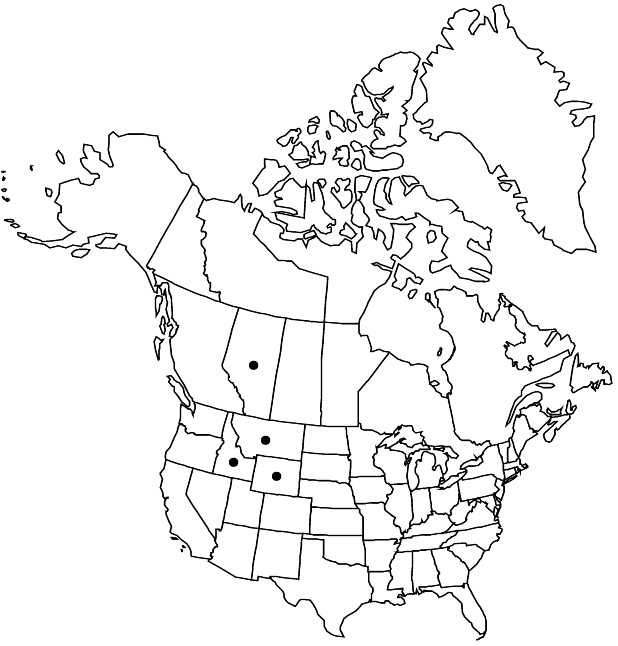Douglasia montana
Proc. Amer. Acad. Arts 7: 371. 1868 ,.
Plants loosely cespitose cushions with branched caudex. Stems prostrate to ascending with marcescent, imbricate, gray to light brown leaves. Leaves spreading to erect, thin; blade linear-subulate, 4–10 × 0.5 mm, margins entire, ciliolate, hairs simple, apex acute, surfaces glabrous. Scapes 5–20 mm, elongating little in fruit, densely hairy, hairs branched and stellate. Inflorescences 1–2-flowered, ebracteate or bracteate; bracts 1–3, subulate, 2–3 × 0.5 mm, hairy, hairs simple or forked. Pedicels present, 0.5–10 mm. Flowers: calyx 4–8 × 3–5 mm, glabrous or slightly hairy, hairs branched and stellate; corolla rose-pink, limb 6–10 mm diam., lobes 3–5 × 1–2 mm, margins erose or entire.
Phenology: Flowering early-mid summer.
Habitat: Foothills, open ridges, scree slopes
Elevation: 1000-3500 m
Distribution

Alta., Idaho, Mont., Wyo.
Discussion
Specimens of Douglasia montana from Wyoming tend to have two flowers per inflorescence (once recognized as var. biflora); those from the northern part of the range tend to have only one. Because both one- and two-flowered inflorescences occur together on individual plants throughout the range, and no other morphological differences separate the forms, the varietal distinction is not recognized here.
In Alberta, Douglasia montana is known only from Waterton Lakes National Park near the Montana border.
Selected References
None.